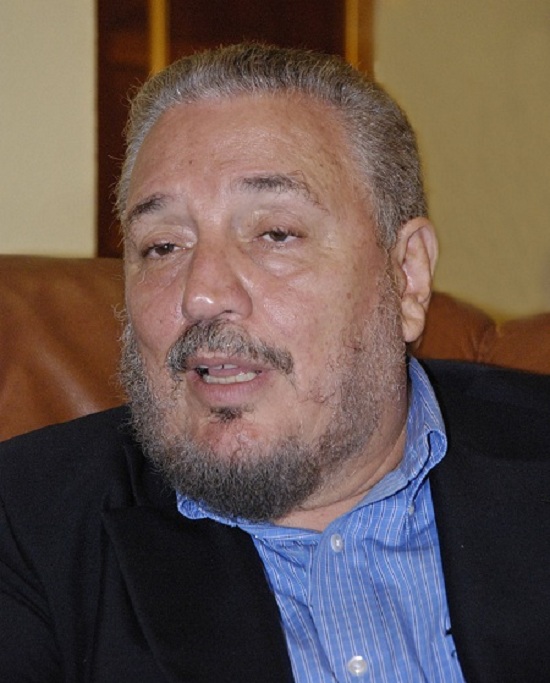Fidel Castro's son commits suicide after battling depression
Published : 02 Feb 2018, 07:55
Updated : 02 Feb 2018, 19:59

Fidel Castro Diaz-Balart, the eldest son of late Cuban revolutionary leader Fidel Castro, took his own life Thursday morning after being treated for depression for months, an official release said.
According to the statement on the government site Cubadebate, the 68-year-old was in a "deep depressive state", for which he had been receiving medical attention.
A brief note read on state television said his treatment had required initial hospitalization, then outpatient follow-up.
Castro Diaz-Balart studied nuclear physics in the former Soviet Union capital. As a doctor of science, he had been in charge of Cuba's nuclear power program from 1980 to 1992, spearheading the development of a nuclear plant in the south-central province of Cienfuegos, 400 km from Havana.
The Cuban government halted the atomic plant plans in 1992 because of a lack of funding after the fall of the Soviet Union, the country's main economic and political ally which was providing technological supplies and financial aids to maintain the program.
Castro Diaz-Balart served as a scientific counselor to the Council of State and was vice president of the Cuban Academy of Sciences.
His father, a prominent communist revolutionary and politician, had led Cuba for nearly half a century before stepping down in 2006 because of severe illness. He was succeeded by his brother Raul Castro.
Fidel Castro died in November 2016 at the age of 90. His policies met with strong opposition from the United States, which broke diplomatic ties with Cuba, organized military offensives, and imposed sanctions against Cuba.
Castro Diaz-Balart was called by the public "Fidelito", or Little Fidel, because he looked very much like his father.
He was born on Sept. 1, 1949 in capital Havana, before the Cuban Revolution which later brought his father to power. His mother Mirta Diaz-Balart was Fidel Castro's first wife.
As one of the most recognized Cuban scientists, Castro Diaz-Balart devoted his entire life and career to the development of science in the Caribbean island nation, the statement said.
He is survived by his son Fidel Antonio and daughter Mirta Maria Castro Smirnova.

